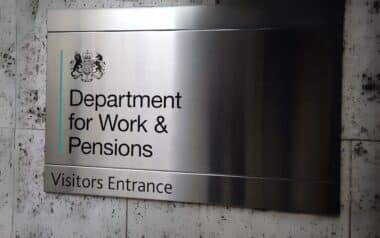In the three months leading up to November, workers’ wages grew at their fastest rate since mid-2021, according to figures from the Office for National Statistics (ONS). Regular pay, excluding bonuses, rose by 5.6%, up from 5.2% in the preceding quarter.
When adjusted for inflation, real pay increased by 2.5%, the highest rate in over three years. Excluding housing costs, the figure jumps to 3.4%, a level of real earnings growth not seen since the summer of 2021.
Economic Overview: Balancing Growth and Challenges
The figures bring both relief and complexity. While households are seeing more disposable income, the Bank of England faces heightened pressure as it considers its next interest rate move.
- Private sector wage growth: 6%
- Public sector wage growth: 4.1%
- Unemployment rate: Rose to 4.4%
- Inflation rate (November): 2.5%
Private Sector Booms as Public Sector Lags
The gap between private and public sector earnings growth is striking. Private sector wages climbed by 6%, while public sector wages trailed at 4.1%. The disparity raises questions about the sustainability of public sector recruitment and retention amid inflation-adjusted pay gains elsewhere.
Expert Analysis: The Dual Impact of Wage Growth on Household Finances
Sarah Coles of Hargreaves Lansdown highlights the mixed blessings of wage growth:
“Wages outpaced inflation again, running hotter than they have for three and a half years. We’re enjoying a smidge of extra wiggle room in our budgets right now, but it could have a sting in the tail if it ends up fuelling higher inflation.”
Her analysis also points to growing household savings, with data showing disposable incomes averaging £136 per month—and as high as £726 among top earners.
A Dilemma for the Bank of England
The Bank of England’s Monetary Policy Committee (MPC) faces a thorny decision. While wage growth outpacing inflation may appear positive, it complicates monetary policy, particularly in an economy already showing signs of stagnation.
Kyle Chapman of Ballinger Group warns of conflicting signals:
“UK ex-bonus wage growth slightly beat expectations, accelerating from 5.2% to 5.6% in November. While this paints a concerning picture for services inflation, it is largely driven by base effects, and broader data still point to a loosening labour market.”
Labour Market Signals
- Vacancies: Declined for 30 consecutive months, hinting at a cooling demand for workers.
- Unemployment: Increased to 4.4%, up from 4.3% in the previous quarter.
Despite rising wages, economic sluggishness and fewer job openings suggest potential hurdles for long-term growth.
Beyond the Headlines: Structural Challenges Persist
While wage growth is welcome news for workers, analysts caution against over-optimism. Rebecca Florisson of the Work Foundation explains:
“Increases in real-term pay may grab the headlines, but these gains appear to be driven by pay catching up with price rises, not by increased productivity or economic growth.”
Productivity remains stagnant, raising concerns about the sustainability of these wage increases over the long term. Without significant economic reforms to bolster growth, real-term pay improvements could falter, limiting their impact on living standards and leaving workers vulnerable to future inflationary pressures.
Government Initiatives to Sustain Wage Growth and Economic Progress
Work and Pensions Secretary Liz Kendall positioned the figures as evidence of progress, stating:
“With real wages continuing to rise, we are working to boost living standards and get the economy growing as part of our Plan for Change.”
Proposed measures include:
- Jobcentre reforms to address employment barriers.
- Guaranteed opportunities for young people to pursue work or education.
- Upcoming public sector wage increases and a minimum wage hike in April.
The latest data highlights a pivotal moment for the UK economy. Workers are enjoying tangible improvements in their living standards, but sustaining these gains will depend on careful management of inflation, economic reform, and the resilience of the labour market.









